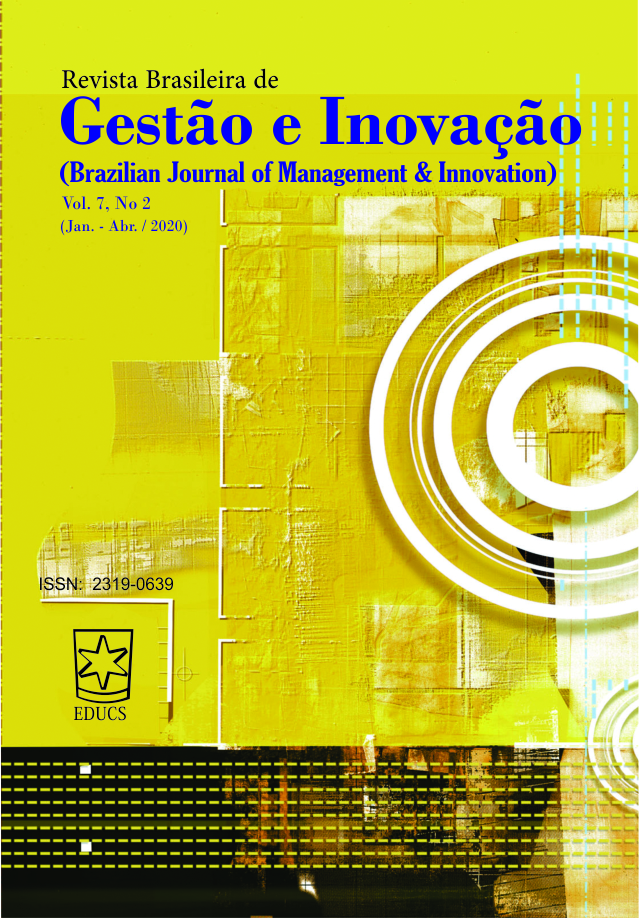PRODUCT VARIETY MANAGEMENT: A PROPOSAL OF METRICS AND INDICATORS FOR THE COSMETIC INDUSTRY | GESTÃO DE VARIEDADES DE PRODUTOS: UMA PROPOSTA DE MÉTRICAS E INDICADORES PARA A INDÚSTRIA DE COSMÉTICA
Keywords:
Product Variety, Product Variety Management (PVM), Mix of Products, Cosmetics industryAbstract
This paper aims to present the problems faced by companies in relation to Product Variety Management (PVM), make the management of the company's product variety studied less complex and more dynamic, balancing the marketing team's objectives with the constraints of the industry, proposing suggestions to assist in decision making and presenting metrics for PVM evaluation.
The variety of products is a current theme and present in the day to day business. With the proliferation of diversified and customized products to meet the demands of different market segments, companies face difficulties to manage the increasing in their portfolio, where excessive quantity of products can cause confusion in customers and difficulties in the operation. On the other hand, the scarcity of diversified products can mean loss of market share and competitiveness.
The study is developed from the observation of the production of a cosmetics company located at Pavuna, state of Rio de Janeiro. Based on the knowledge of each department dynamics and variables involved with the offered product mix, this study indicates ways to minimize the difficulties arising from PVM, presenting management tools to streamline and improve product-related decision making.
DOI: 10.18226/23190639.v7n2.01
Luiz Thyerre Oliveira, Centro Federal de Educação Tecnológica Celso Suckow da Fonseca (CEFET/RJ). Brasil.
E-mail: thyerre.oliveira@gmail.com
Carmine Oliveira, Centro Federal de Educação Tecnológica Celso Suckow da Fonseca (CEFET/RJ). Brasil.
E-mail: carminemontico@yahoo.com.br
Diego Barros, Centro Federal de Educação Tecnológica Celso Suckow da Fonseca (CEFET/RJ). Brasil.
E-mail: diegoseelinger@gmail.com
Augusto Cunha Reis, Centro Federal de Educação Tecnológica Celso Suckow da Fonseca (CEFET/RJ). Brasil.
E-mail: professor.augusto.reis@gmail.com
Ana Claudia Dias*, Centro Federal de Educação Tecnológica Celso Suckow da Fonseca (CEFET/RJ). Brasil.
E-mail: missdias@gmail.com
Haydee Silveira, Centro Federal de Educação Tecnológica Celso Suckow da Fonseca (CEFET/RJ). Brasil.
E-mail: haydeemcsb@gmail.com
Submetido: Julho 2018
Aceito: Janeiro 2019
*Contato para Correspondência
Downloads
Published
How to Cite
Issue
Section
License
The author must guarantee that:
- there is full consensus among all the coauthors in approving the final version of the document and its submission for publication.
- the work is original, and when the work and/or words from other people were used, they were properly acknowledged.
Plagiarism in all of its forms constitutes an unethical publication behavior and is unacceptable. Revista Brasileira de Gestão e Inovação has the right to use software or any other method of plagiarism detection.
All manuscripts submitted to RBGI - Revista Brasileira de Gestão e Inovação go through plagiarism and self-plagiarism identification. Plagiarism identified during the evaluation process will result in the filing of the submission. In case plagiarism is identified in a manuscript published in the journal, the Editor-in-Chief will conduct a preliminary investigation and, if necessary, will make a retraction.
This journal, following the recommendations of the Open Source movement, provides full open access to its content. By doing this, the authors keep all of their rights allowing Revista Brasileira de Gestão e Inovação to publish and make its articles available to the whole community.
RBGI - Revista Brasileira de Gestão e Inovação content is licensed under a Creative Commons Attribution 4.0 International License.
Any user has the right to:
- Share - copy, download, print or redistribute the material in any medium or format, linking to RBGI site.
- Adapt - remix, transform and build upon the material for any purpose, even commercially.
According to the following terms:
- Attribution - You must give appropriate credit, provide a link to the license, and indicate if changes were made. You may do so in any reasonable manner, but not in any way that suggests the licensor endorses you or your use.
- No additional restrictions - You may not apply legal terms or technological measures that legally restrict others from doing anything that the license permits.
#RBGI







